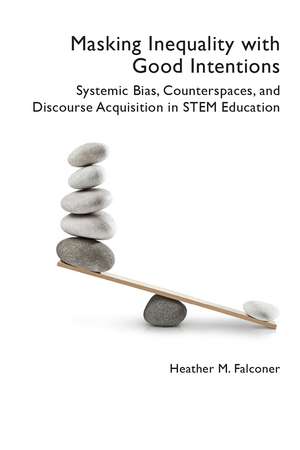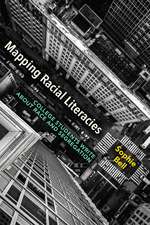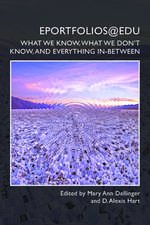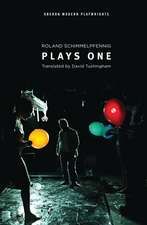Masking Inequality with Good Intentions: Systemic Bias, Counterspies, and Discourse Acquisition in STEM Education
Autor Heather M. Falconeren Limba Engleză Paperback – 17 iul 2023 – vârsta ani
Drawing on the experiences and writings of six students from historically underrepresented backgrounds in STEM, each participating in an undergraduate research program, Falconer discusses how programmatic and pedagogical choices can work to either further marginalize students and disrupt their writing and identity development as scientists or create counterspaces—spaces where students can thrive and push back against dominant, oppressive forces. Practical applications for pedagogy, curriculum, and program design are included.
Preț: 179.92 lei
Nou
Puncte Express: 270
Preț estimativ în valută:
34.43€ • 36.04$ • 28.49£
34.43€ • 36.04$ • 28.49£
Carte tipărită la comandă
Livrare economică 07-21 aprilie
Preluare comenzi: 021 569.72.76
Specificații
ISBN-13: 9781646423897
ISBN-10: 1646423895
Pagini: 162
Dimensiuni: 152 x 229 x 15 mm
Greutate: 0.25 kg
Editura: The WAC Clearinghouse
Colecția The WAC Clearinghouse
ISBN-10: 1646423895
Pagini: 162
Dimensiuni: 152 x 229 x 15 mm
Greutate: 0.25 kg
Editura: The WAC Clearinghouse
Colecția The WAC Clearinghouse
Recenzii
Scholarly literature on programs for diversity, equity, and inclusion in STEM education has proliferated in recent years, and Falconer contributes to the discussion with this qualitative case study and her well-theorized recommendations for institutional change. Highly recommended."
—CHOICE
—CHOICE
Notă biografică
Heather M. Falconer is Assistant Professor of Professional and Technical Writing at the University of Maine, Orono. She is a co-editor of the WAC Clearinghouse Perspectives on Writing book series, co-chair of the Research and Publications Committee of the Association for Writing Across the Curriculum, and a member of several editorial and regional boards. Her research focuses on the intersections of culture, discipline, and pedagogy, with an emphasis on creating inclusive educational spaces. Her work has appeared in journals including Written Communication, The WAC Journal, and the Journal of Hispanic Higher Education, as well in edited collections.
Descriere
In Masking Inequality with Good Intentions, Heather M. Falconer examines the impact of systemic bias on disciplinary discourse acquisition and identity development by asking “How do the norms and expectations of higher education and STEM, specifically, impact the development of scientific identity and discursive skill?” and “What role do societal markers like race and gender play in the negotiation of identity in STEM learning environments?”






















